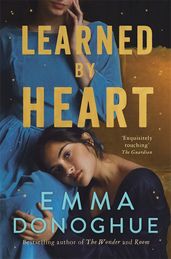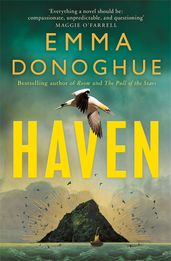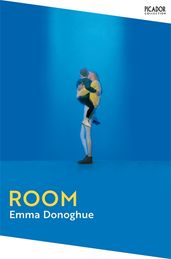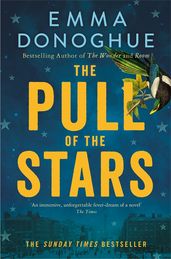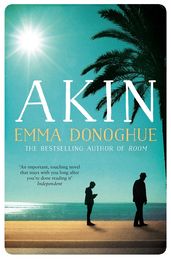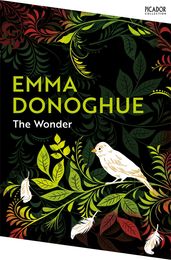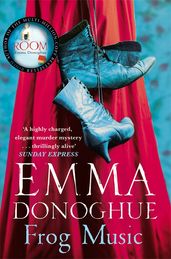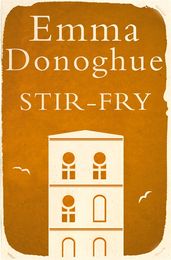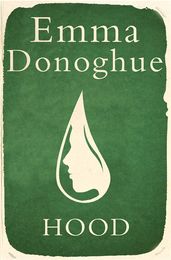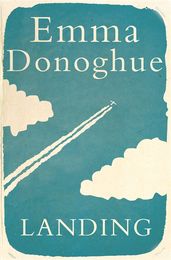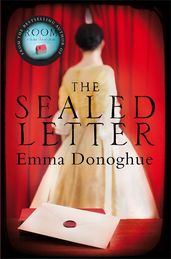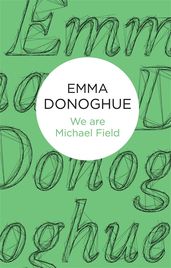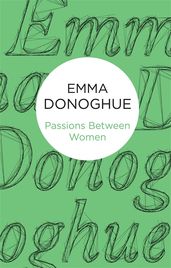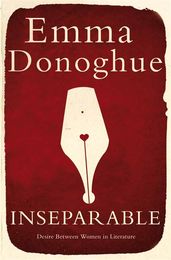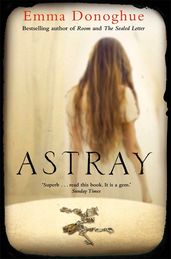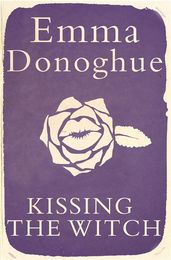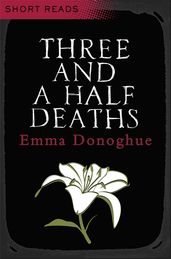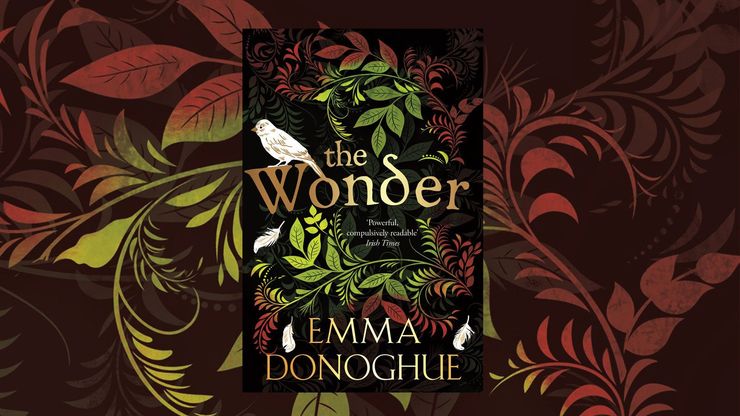A guide to Emma Donoghue's books
With an exuberant and seemingly unending imaginative talent, Emma Donoghue writes novels, stories, memoirs and plays. Here's our rundown on her sparklingly diverse output, from fairytales with a twist to stories of forbidden love through the centuries.
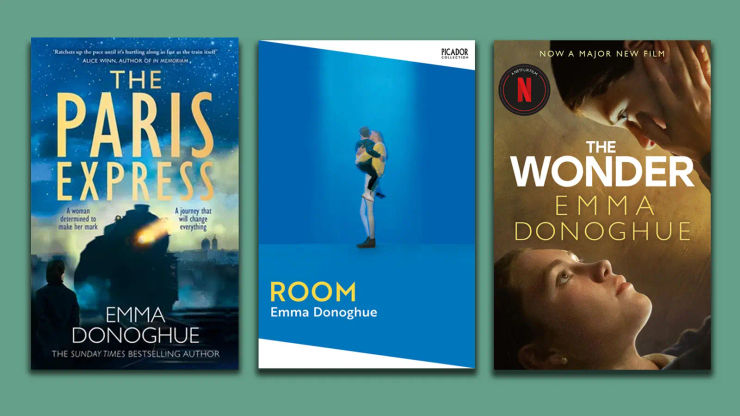
Emma Donoghue's name is synonymous with literary excellence. Her books stay with her readers long after their final page and have been adapted for both the small and silver screens to great acclaim.
Her beloved novel Room, was the New York Times Best Book of 2010 and a finalist for the Man Booker Prize, Commonwealth and Orange Prizes. It sold millions of copies in forty languages, and in 2015 Brie Larson won an Oscar for her performance as Ma in the blockbusting film adaptation, for which Emma herself wrote the script. Emma also penned the script for the adaptation of her novel The Wonder, starring Florence Pugh.
Forgotten stories, forbidden love and outcasts are her subjects, and her imagination ranges from modern romance to age-old witchcraft; so whether you're already a fan and looking for your next read or you're new to her work and wondering which of Emma Donoghue's books to read first, we're sure you'll find plenty to entrance you in our list.
Emma Donoghue's novels
The Paris Express
by Emma Donoghue
Autumn, 1895. An anarchist boards the ill-fated Granville to Paris express train, determined to make her mark on history. Aboard the train are others from across the globe: the railway crew who have built a life together away from their wives, a little boy travelling alone for the first time, an artist far from home, a wealthy statesman and his invalid wife, and a young woman with a secret. This is a historical thriller you won't be able to put down.
Learned By Heart
by Emma Donoghue
In 1805, at a boarding school in York, two fourteen-year-old girls meet. One is Eliza Raine: orphan daughter of an Indian mother, tired of being different, she keeps herself to herself. The other is Anne Lister: known later in life as Gentleman Jack, she's an outspoken troublemaker, ready to conquer the world. As they fall in love, the connection they forge will remain with them for the rest of their lives.
Haven
by Emma Donoghue
An Irish scholar and priest named Artt has a dream: he has to leave the world of sin behind him. So he takes two monks – young Trian and aged Cormac – and travels along the river Shannon, looking for a remote spot where he can found a monastery. The three men drift into the Atlantic, where they discover a steep and bare island, whose only inhabitants are tens of thousands of birds. They call it Skellig Michael, and here begins their fight for faith and survival.
Room
by Emma Donoghue
Shortlisted for both the Booker Prize and the Women’s Prize for fiction, Room is a unique novel, about survival, innocence and the bond behind mother and son. You might have seen the film adaptation, which won the Best Actress Oscar for Brie Larson. The book is definitely gong-worthy, too.
The Pull of the Stars
by Emma Donoghue
As war and disease ravage Ireland, Nurse Julia Power works in a tiny ward in an understaffed hospital, where expectant mothers struck by an unfamiliar flu are quarantined together. Julia is assisted by two new arrivals, Doctor Kathleen Lynn, on the run from the police, and a young volunteer helper, Bridie Sweeney, and over the course of three days these women will change each other's lives in unexpected ways. The Pull of the Stars is a classic story of hope and survival from the bestselling author of Room.
Akin
by Emma Donoghue
Noah’s life is thrown into chaos when a social worker calls looking for a temporary home for Michael, his eleven-year-old nephew. Noah, a retired professor, was about to leave on a trip to Nice to uncover the secrets of his mother’s past, and so the odd couple embark on an adventure together. As they unearth troubling family secrets, they realise that they may be more akin than they knew.
The Wonder
by Emma Donoghue
From the sixteenth to the twentieth centuries, there have been multiple cases of 'fasting girls,' girls and young women who claimed not to need food to sustain them. Inspired by these disturbing true stories, Emma Donoghue's The Wonder is set in the Irish Midlands in the 1850s. An eleven-year-old girl has stopped eating, but miraculously she is still alive and well. A nurse is sent to find out if she is a fraud, and meets a journalist who is looking for a story. This compelling and unusual tale has been made into a film starring Florence Pugh.
Frog Music
by Emma Donoghue
Another novel inspired by a true story: this time a tale of an unsolved crime. It's San Francisco in 1876, and the city is in the grip of a broiling heat wave and a smallpox epidemic. Down in Chinatown live three former Parisian circus stars: exotic dancer Blanche, her lover Arthur and his friend Ernest. When a quirky outsider joins them, secrets are exposed, which change everything and leave one of the group dead.
Stir-Fry
by Emma Donoghue
At the age of seventeen, insecure Maria leaves her life with her parents in a small-town grocery for university life in Dublin. An ad for an apartment leads Maria to share with two older charismatic students: warm Ruth and witty Jael. This heartfelt and insightful coming-of-age tale explores love between women and notions of sisterhood.
Hood
by Emma Donoghue
Penelope O'Grady and Cara Wall, students in a convent school in Dublin in the 1970s, risk everything when they fall in love. But free-spirited Clara and stoical Pen have an unbreakable bond, despite arguments, secrets and Cara's cheating. Thirteen years on, and a car crash kills Cara, wrecking Pen's world. A devastated widow, Pen cannot even claim the world as she is still in the closet. Over an unreal and memory-laden week of bereavement, Pen looks for the strength to begin reshaping her life.
Landing
by Emma Donoghue
A lovely and old-fashioned romantic comedy with a modern twist, Landing delves into the pleasures and pains of long-distance love. Síle is a stylish Dublin flight attendant who has travelled the globe; Jude is a young archivist who is wedded to her tiny small town of Ireland, Ontario. On her first flight, Jude's world meets that of Síle, and everything changes for them.
The Sealed Letter
by Emma Donoghue
Based on a real-life drama that had England gripped in 1864, The Sealed Letter is an intriguing story of secrecy, betrayals and hidden love. Helen Codrington is stuck in an unhappy marriage, and Emily 'Fido' Faithfull has not seen her once beloved friend for many years. They bump into each other in London, and Fido is persuaded to help Helen have an affair with a young officer. The old friendship disintegrates amidst scandalous courtroom accusations, and the appearance of a sealed letter which has the power to destroy more than one life.
Emma Donoghue's non-fiction works
We are Michael Field
by Emma Donoghue
Emma Donoghue narrates the tale of two eccentric Victorian spinsters: Katherine Bradley (1846–1914) and her niece Edith Cooper (1862–1913); they were poets and lovers who wrote jointly under the name of Michael Field. Together they produced eleven volumes of poetry and thirty historical tragedies, as well as a bracingly honest and witty journal.
Passions Between Women
by Emma Donoghue
Passions Between Women examines tales of lesbian loves, lusts and personas from the Restoration to the start of the nineteenth century. Through an exploration of legal, medical and erotic sources as well as reinterpretations of literary classics, Emma Donoghue uncovers a huge range lesbian and bisexual characters from history, including women pirates, chambermaids, queens, prostitutes and poets.
Inseparable
by Emma Donoghue
Love between women is a constant in literature, from Chaucer and Shakespeare through to Charlotte Brontë, Charles Dickens, Agatha Christie and many more. In Inseparable, Donoghue explores the depiction of female love between schoolgirls, vampires, unhappy wives and cross-dressing knights. Her long-hidden story of female friendship and love turns out to be remarkably central to our cultural identity.
Emma Donoghue's short story collections
Astray
by Emma Donoghue
These fourteen stories are inspired by true life, and centre on travels to, from and around the United States. All the characters – from drifters to gold miners to slaves and attorneys – are on the run, travelling to safety, and for money or love. Donoghue writes of a slave plotting with his master's wife for freedom, a Puritan community rocked by an invented sex scandal and betrayal during the American Revolution.
Kissing the Witch
by Emma Donoghue
Here Donoghue unravels thirteen fairy tales, and rewrites them with sensual charm. In these versions, Cinderella ditches the prince and makes off with the fairy godmother, Beauty discovers the Beast is not so far from what she sees when she looks in the mirror, and Snow White wakes from her sleep full of unnamed desire.
Three and a Half Deaths
by Emma Donoghue
'What the Driver Saw' is based on an accident on Nice's Promenade des Anglais, the 1920s equivalent of Princess Diana's last trip through Paris. 'The Trap' takes us to New York in 1878, with a woman at the heart of a public scandal reaching the end of her tether. 'Sissy' dives into the guilt of a woman whose young sister died in 1840s Ontario. Finally, 'Fall' tells of an event at Niagara Falls in 1901, with a middle-aged schoolteacher staking her future on a stunningly daring act.

